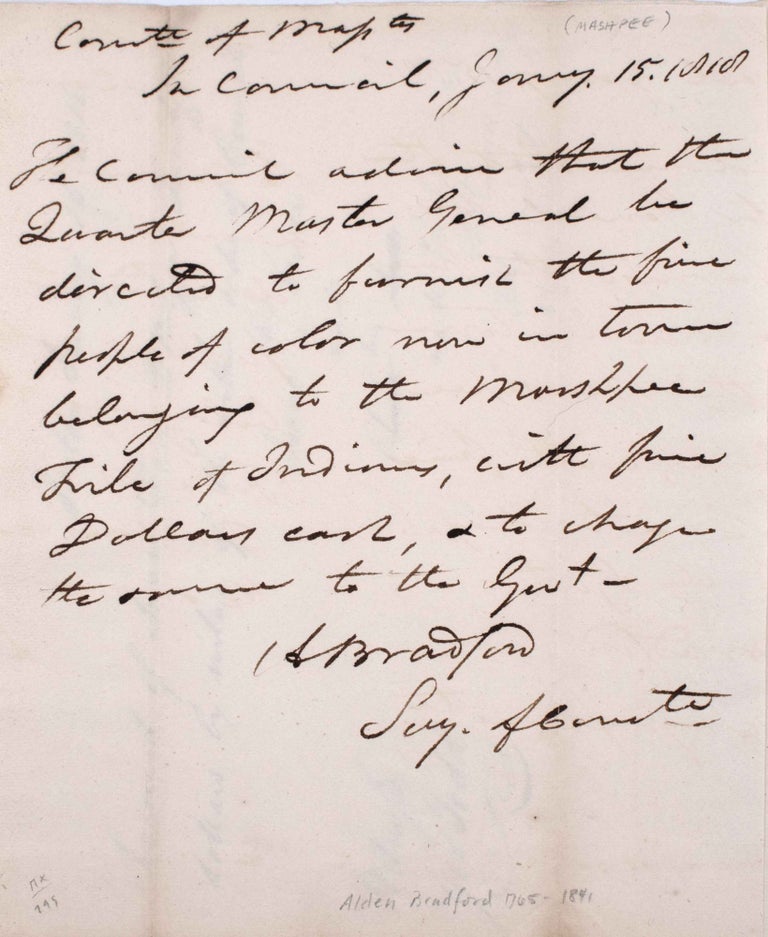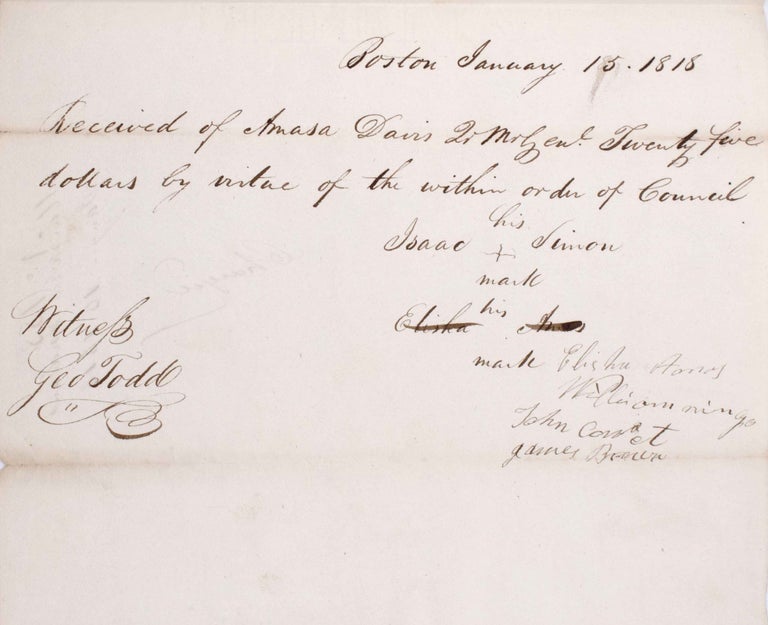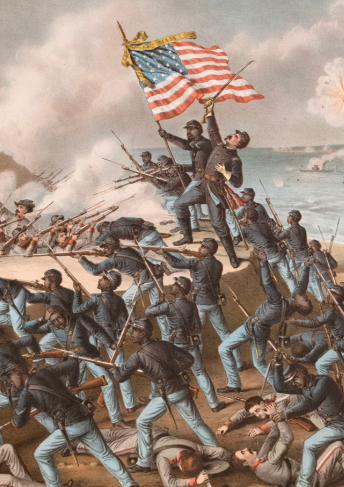Signed by Five Members of the Tribe
Autograph document signed by Alden Bradford ordering the quartermaster general "to furnish the five people of color now in town, belonging to the Mashpee Tribe of Indians, with five Dollars each" and signed on the following page by each of the Native Americans acknowledging receipt: Isaac Simon, Elisha Amos, William Mingo, John Cowet, and James Brown.
Boston: January 15, 1818.
Price: $6,500.00
About the item
Folded small quarto sheet. Countersigned by witness George Todd and docketed on verso. Signed by Five Members of the Tribe. Usual folds. See Daniel R. Mandell, "'We, as a tribe, will rule ourselves': Mashpee’s Struggle for Autonomy, 1746–1840" in Reinterpreting New England Indians and the Colonial Experience (The Colonial Society of Massachusetts, 2003), pp. 299-340.
Item #326722
On January 31, 1818 a Committee of both Houses of the Massachusetts General Court considered a "petition of William Mingo and others, Indians on the plantation of Mashpee, in the county of Barnstable, praying for the removal of the present Overseers, and for the establishment of some new regulation respecting the said plantation." The Court resolved to appoint three commissioners to visit the plantation. It seems likely that this document, dated just two weeks prior to the Court's resolve, is a record of the Native Americans visiting to either testify or formally deliver the petition.
Mandell writes: "After 1800, and particularly between 1815 and 1835, Indian communities increasingly demanded an end to guardianships or became quite willing to ask the legislature to replace particular individuals. Their protests became sharper, more insistent, and demanding of self-rule ... Despite the Indians’ initiatives, state officials continued to believe the Indians incapable of acting in a properly virtuous, responsible manner. As might be expected, the Mashpees did not rest with their partial victory but continued their campaign for self-determination. In June 1817, nine men, including Levi Mie and others who had opposed the late Reverend Hawley, asked that the tribe be allowed to choose their own overseers and that the number be reduced to two ... They emphasized the increasing amount of meadow leased and wood cut by the three guardians, their rising debt, the officials’ refusal to show their accounts, and the resulting moral harm to the Mashpees and costs to the state ... The legislature again dispatched an investigating committee to Mashpee, which returned a report that stressed the 'diversity of opinion' among the Indians: 'a very small part claiming the entire right of self government,—a much more considerable portion wishing to share it with the authority of the Commonwealth, by choosing overseers to be joined with those appointed by the governor and Council; while others not less intelligent, believed no share in selecting their overseers could not safely be rested in the Indians & that the present mode of government ought to be continued.' ... Apparently little had changed in the perceptions and attitudes of Anglo-American elites — or in the lack of consensus among Indians about the degree to which they could manage complete autonomy while protecting their lands."
Indeed, Mandell notes in a footnote that later testimony charged that the commissioners never actually visited the Mashpee.



